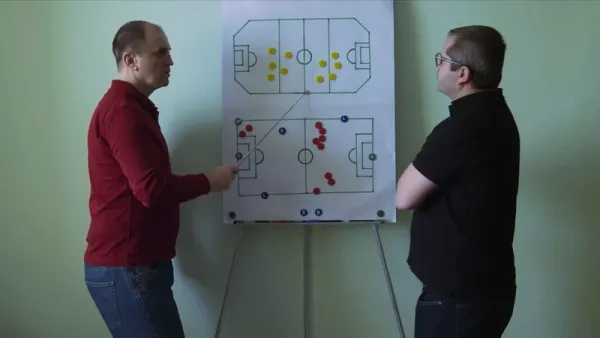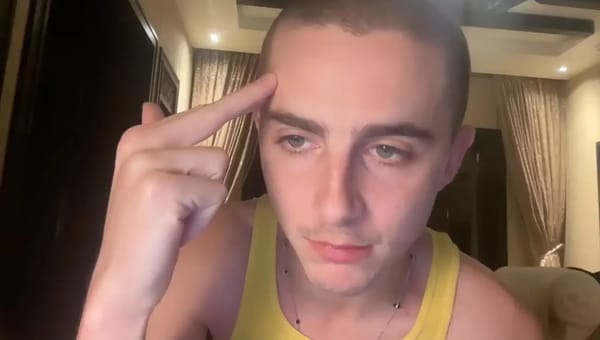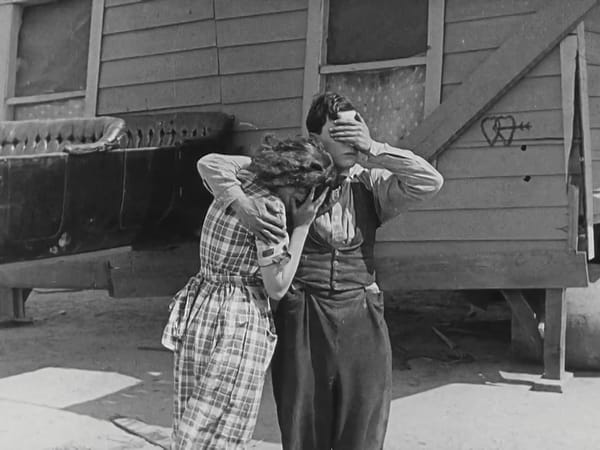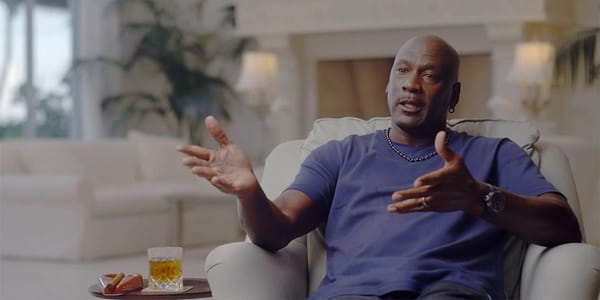Sins of the Father
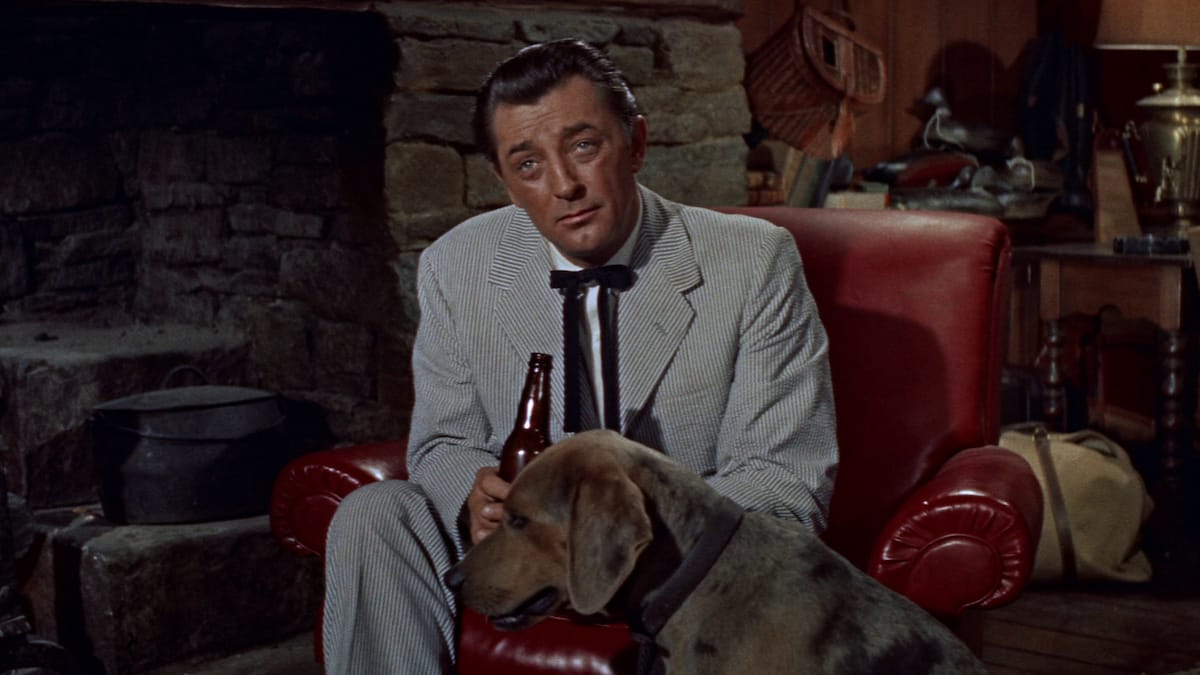
In Vincente Minnelli's Home from the Hill, tragedy is inherited
The greatest melodramas are fatalistic in nature. In a certain sense, traceable from Vidor to Sirk to Nick Ray, they all traffic in inevitability. We know what will happen – or, at least, we are never too surprised when it does. Our emotional response flowers from the tension between what we want and what we understand to be true – the desires of the characters, versus the social conventions precluding their fate. A particularly endearing quality these films share is that they are about, to borrow from La La Land (2016), fools who dream.
One such fool is Theron Hunnicutt (George Hamilton), the lead of Vincente Minnelli’s Home from the Hill (1960), a Southern family tale in the vein of Giant or Written on the Wind (both 1956). The movie’s inexorable narrative charts Theron’s coming of age under the tutelage of his father Wade, played by a gruff, sardonic Robert Mitchum. Theron’s foolish dream is, of course, to become a self-sufficient patriarch like Wade, a man overflowing with masculinity. But while the father adopts stereotypical, macho traits of independence and assertiveness with a casual demeanour, it is the world around him that seems to suffer its toxic repercussions – so much so that this deluge appears to poison his son’s life too. Tragedy in Home from the Hill isn’t contained to one man, but recurs through the generations.
True to this mode of tense domestic melodrama, it is the very setting of these characters’ lives that is altered. Wade’s metaphorical “taking in” of his son, as he teaches him how to hunt and eventually own land, effectively severs Theron from his mother. Even the rooms of their mansion are made aesthetically as well as geographically distinct. Wade’s blood-red basement is lined with animal heads, fishing rods, and rifles. The maternal, domestic sphere is less hellish but equally stifling in its muted mediocrity, emphasised by long tracking shots that expose claustrophobic hallways bisecting the frame.
Eleanor Parker’s performance as Hannah, Theron’s mother, is deeply mannered, cloaking her insecurities in a strained Southern drawl. Indeed, felt in almost every actor’s performance is the sense of some great schism between them and the rest of the world — perhaps it isn’t a coincidence that the film came out in 1960, at the dawn of an era that would see rapid and unprecedented social change away from traditional family values. Home from the Hill essentially charts what happens to a deeply conservative family when its rigid values are challenged and displaced, from both outside and within. As such, in portraying characters whose way of life is threatened by change, the film appears slightly regressive at first, and almost reactionary — there is even a suggestion, early on, that Hannah and Wade’s marriage is crumbling because she doesn’t put out enough.
On the other hand, the emotional core of the film lies in its subversion of these values. Wade, for example, may have instinctive, unshakably masculine ideals, but he is progressively and inexorably crushed by them. Much of this is expressed through a central fatalism in the film. The epigraph, from which the title derives, is taken from Robert Louis Stevenson’s ‘Requiem’, a poem that acknowledges the speaker’s own mortality. The peculiar sense that Wade is, in some ways, already dead is made explicit in melodramatic fashion by the numerous men who come to shoot at him for screwing their wives. But it also shows in his lethargic drunkenness. Those traits which make him strong according to old-fashioned models of masculinity, also make him a kind of child, regressing gradually into a state before existence or responsibility.
Reflecting the cynical lens on masculine ideals present in his earlier Tea and Sympathy (1956), Minnelli exposes the contradictions of Wade’s philosophy through the film’s most interesting character, Rafe (George Peppard). With his brazen confidence, self-sufficiency, and passion for hunting, he is everything that Theron is not — an adoptive child to fulfil Wade’s dream of rural, individualistic manhood. He is also a probe for Home from the Hill’s most tense and provocative questions : what if pride and an easy-going attitude were just a mask for the pain of rejection? What good is inheritance when your offspring despise you? What happens when a conservative family man is habitually unfaithful?
Rafe is revealed to be Wade’s rejected son, born to a mother his father calls a whore. Although Rafe is everything Wade would like in a son, the patriarch cannot love him; he cannot look into the eyes of a child who reflects his own failings back upon himself. Propelled by melodrama’s logic of repetition and despair, the plot evolves into one of generational divides and familial guilt. Ultimately, it is Rafe, not Theron, who is able to escape this unknowable burden, propelled by his independence and empathy. Theron, meanwhile, fleeing his mother’s care which he perceives as potentially emasculating, bounds between the teachings of his father and those of his half-brother. Quickly becoming an obsessive hunter himself, the sole skill he must learn from the latter is how to pursue romantic relationships.
While Mitchum’s embittered rants draw a disturbing parallel between sexuality and sport (‘I take it as my right to cross any man’s fences when I’m hunting’), young love seems, initially, to be more of an escape for Theron from all the pressure he is under as Wade’s son. As with all drama, however, it is one laced with tension and contrast. For example, in a rather subtle act of foreshadowing, his first date with local girl Libby (Luana Patten) is engineered entirely by Rafe. The half-brother therefore acts as a vessel for sexuality and experience, things that Theron can only view through the eyes of others. Likewise, a meeting between Theron and Libby at his home begins with him in Wade’s cellar, escalating to Theron’s childhood room of toys and scientific gear when they are finally together.
These two spaces, densely symbolic and as solemn as the alternate futures they represent, highlight Theron’s contradictory impulses towards life and death. His own room, despite being a place of arrested development, is full of adventure and ambition. Each piece of boyhood kit is a potential pathway, a mode of adventure outside of his father’s violent hobby. Wade’s room suggests mortality not just in its wall of animal trophies, but also in its encapsulation of a man who, according to the fatalism of melodrama (and, earlier, classical tragedy), must die in the movie’s close. Minnelli perfectly expresses why this dangerous path is initially so intoxicating to the young man.
Our first introduction to Wade’s room begins as the patriarch follows Theron downstairs. The slow, unobtrusive panning shot of his entrance in the left of the frame is a cinematic distillation of comfort and independence. All in the same movement, he strolls to a fridge, cracks open a beer, and lies down in an enormous leather seat. Theron is in the foreground, with only his back visible, his role as an observer further underlined. His is almost the audience’s position, and we viewers learn to empathise with, if not totally understand, Theron’s desire to resemble and emulate Wade. There may even be a more intertextual side to this scene; after all, Mitchum’s performance is that of a regurgitated John Wayne, relentlessly bold yet incongruous in a modern setting.
In contrast to the set’s overstated irony, the rest of the direction is subtly compelling and perverse. When Wade directs Theron to aim and shoot a rifle into the fireplace, Minnelli employs a bracing series of quick cuts between the two men, underscoring the violent tension already implied by the father’s elusive, whispering tone. The moment itself is coded as a strange, Freudian passing on of masculinity — the gun acting as a dangerous phallic object that replaces any need for maturity or thought. The effect of the rifle’s shot is an eruption of flames. Adopting what we may now call toxic masculinity is playing with fire, the images suggest – but God is it fun.
A potential future with Libby appears as a sort of regression for Theron, because of what he has learned about the lies and secrets at the heart of the family he is already a part of. Ironically and tragically, his relative acceptance into the Hunnicutt family — into the arms of the serial cheater Wade and into Hannah’s, the mother forced to put on a brave face — makes the idea of starting one of his own a stifling prospect. Rafe, undoubtedly the biggest victim of Wade’s mistakes, is somehow spared this sense of dread. In his mind, cruelty is forgiven and rectified, rather than reproduced. This theme of recurrence, which I have argued is a core tenet of melodrama, turns the piece into a far more radical commentary on family and masculinity than indicated before.
Wade is a tragic hero, a man condemned by his own flaws. But when we realise that his actions and expectations do not only destroy his life, but also his son’s, we know we are viewing something different, something destabilising and severe. The effect of Wade’s behaviour and beliefs expands beyond himself, across generations and contexts. Home from the Hill uses the tropes of melodrama (specifically, its characters’ inability to interrupt the vicious cycles they’re in), but applies them to the family in order to explore and expose the very real effect of parents on their children. The first hints that Theron may become his father appear when Libby’s father locks him out of his house, saying he doesn’t want ‘his kind’ around. While the fear is literally instilled by the fact that his wife cheated on him with the womaniser Wade, the implication is that these traits are embedded in the child, inherited from the father.
Again, the film’s ostensible conservatism battles with itself just as the character’s do with each other, arguing partly that you cannot really change who you are, while also proposing the opposite through the character of Rafe. Always a fusion of victimhood and liberating independence, the fact that he wasn’t nurtured by Wade and his family is what gives him the compassion to marry Libby when she is pregnant with Theron’s child. Meanwhile, and in direct contrast with Rafe’s behaviour and reasoning, Theron essentially becomes his father, repeating his very same mistake and abandoning his child as a result of the anger and dejection he feels when he finds out about Rafe’s place within the family. His justification is his complete lack of faith in this unit; really he is experiencing an existential terror, an inability to confront a rekindled past.
Even when Theron tries to begin a new life, avoiding Wade with all his might, it turns out that the powerful patriarch holds a mortgage on the factory he works at. Wade can command Theron’s time with his money — though he cannot buy his affection, he can pay for a place in his son’s mind for him to haunt, to further instil contradiction. “All our children deserve better parents,” Wade laments at one point. The script sets him up for forgiveness, but he is killed in an overwrought, wretched twist of fate. Libby’s father, hearing some local men gossip about her child resembling Wade, mistakenly believes that the womaniser is the father. In an outburst of paranoia and rage, Libby’s father shoots him. Theron tracks the murderer down, kills him in turn, then leaves town forever.
By the end, the cycle is complete. These unsubtle and brutal moments of violence near the film’s closing cement a complete loss of childhood innocence. The hunter has become the hunted — and, more regrettably in this case, the son has become the father. While the film’s final sequence clearly evokes a destiny of isolation and want of purpose — a life of rugged, cold masculinity that is almost romantic, in how it recalls the fate of the classical lonesome cowboy — there is another, earlier moment that gracefully and more accurately sums up Theron’s new world. After Rafe and Libby have moved in together, Theron waits outside their house at night, cowering behind a silhouetted tree. He stares up at the golden, gleaming windows and imagines them inside. With all the sins he has inherited, perhaps this perverse act of self-pity and subdued domination seems natural to him. He just watches as the lights go out, the door forever closing on what could have been his own future.

